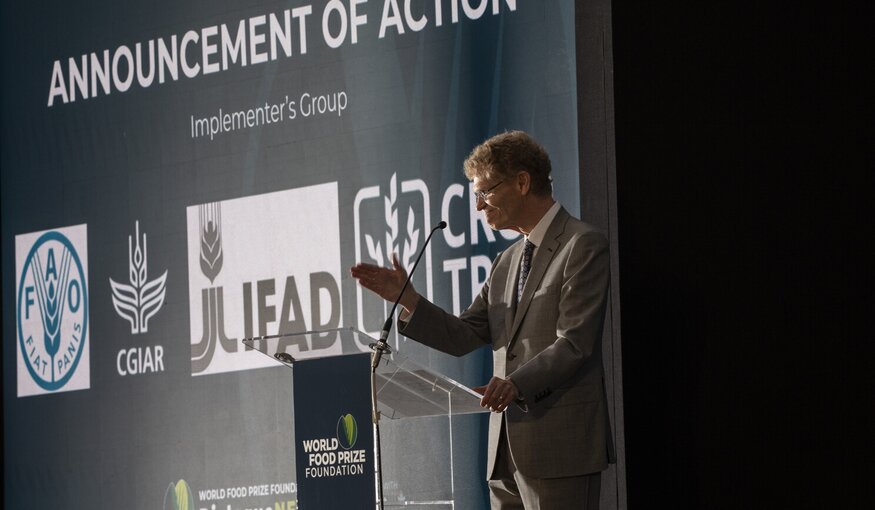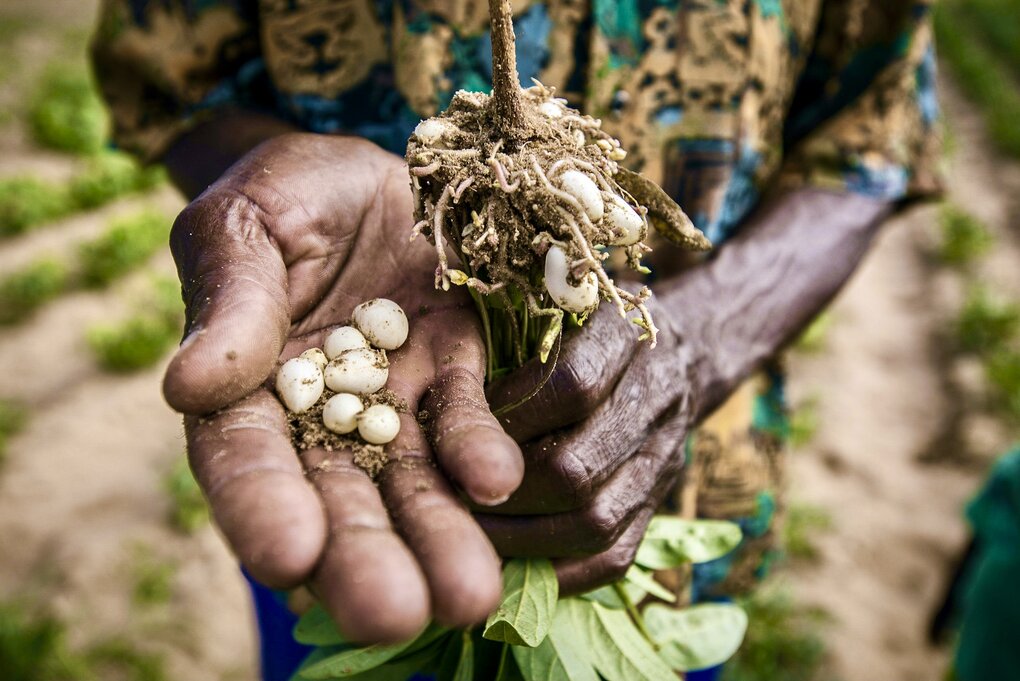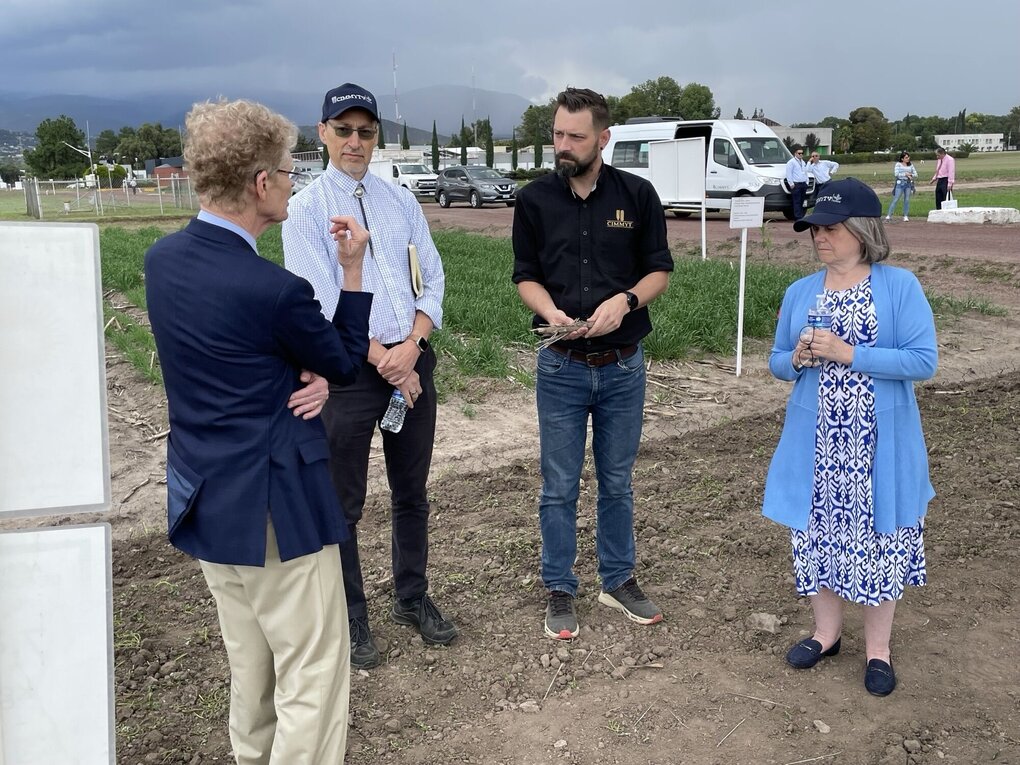Crop Trust Joins VACS Implementer's Group to Strengthen Response to Global Hunger and Malnutrition With Opportunity Crops

11 July 2024
Texcoco, Mexico, July 11, 2024 – The Crop Trust, a global organization dedicated to the conservation of crop diversity, is proud to announce its membership in the Vision for Adapted Crops and Soils (VACS) Implementer's Group. The VACS initiative seeks to build a resilient food system grounded in diverse, nutritious, and climate-adapted crops grown in healthy, fertile soils.
This significant milestone was announced at DialogueNEXT at the International Maize and Wheat Improvement Center’s (CIMMYT) headquarters in Texcoco, Mexico, by Catherine Bertini, Chair of the Executive Board of the Crop Trust, and Cary Fowler, the U.S. State Department’s global envoy for food security. Attended by more than 200 farmers, scientists, agribusiness leaders, policymakers and other food systems stakeholders, representing 55 countries, DialogueNEXT is co-organized by the World Food Prize Foundation and CIMMYT to trace Norman Borlaug’s footsteps and revisit landmarks preserving his legacy.
“We are in the business of achieving a food secure world, which means being more serious about investing in agricultural research,” said Cary Fowler at DialogueNEXT.
The VACS Implementer's Group serves as the primary platform for coordination and collaboration among institutions dedicated to advancing the goals of VACS. The group focuses on aligning efforts, maximizing collective impact, and promoting transparency and collaboration to achieve food security and sustainable agricultural development. Other members of the Group are the Food and Agriculture Organization of the United Nations (FAO), the international agricultural research consortium CGIAR, and the International Fund for Agricultural Development (IFAD).
Catherine Bertini, Chair of the Executive Board of the Crop Trust, stated, "The Crop Trust's membership in the VACS Implementer's Group marks a significant step towards a more coordinated global effort in addressing food security through opportunity crops. By working together with CIMMYT, FAO, CGIAR, IFAD, and other partners, we can harness our collective strengths to make a tangible difference in the lives of millions."
Opportunity Crops: An Investment to Tackle Malnutrition
In the past decades, agricultural research has made enormous strides in improving the yield, nutritional quality, and disease resistance of staple crops like wheat, maize, rice and potatoes. But today, many countries are still facing the challenges of hunger and malnutrition.
With more than 700 million people undernourished, and child stunting and nutrient deficiencies widespread in developing countries, VACS focuses on enhancing the agricultural productivity of so-called opportunity crops.
Opportunity crops, also sometimes known as forgotten, neglected, or underutilized crops, can play a much bigger role in nourishing people around the globe in complement to the global staples – if given the chance. Food demand will increase by more than 50 percent in Sub-Saharan Africa by 2050, and 25 percent globally, while climate change and land degradation are decreasing crop yields. Many opportunity crops – from millets to quinoa to Bambara groundnut – are resilient, able to withstand extreme climates, and provide excellent nutrition as part of a balanced diet.
The Crop Trust and VACS
The Crop Trust's participation in VACS highlights its 20 years-long commitment to the conservation and use of crop diversity in all its forms for global food security.
The Crop Trust is committed to upholding the core principles of the VACS Implementer's Group, including transparency, simplicity, and collaboration. By coordinating action on opportunity crops across the Implementer’s Group, the Crop Trust will contribute to an aligned approach to monitoring, evaluation, and comprehensive implementation of the VACS initiative.

The Crop Trust contributes to the VACS initiative through all of its work, including through its BOLDER (Building Opportunities for Lesser-known Diversity in Edible Resources) project, which focuses on putting opportunity crops back on the menu in four African countries.
BOLDER, generously funded by the Norwegian government, strives to improve the nutritional security of people in Benin, Ghana, Uganda, and Tanzania through the use of the diversity of opportunity crops that are well-adapted, nutritious, and resilient to climate change.
Categories: For The Press, For Partners, For Policymakers, Press Releases, BOLD, Bambara Groundnut, Finger Millet, Pearl Millet, Nutritional Security

